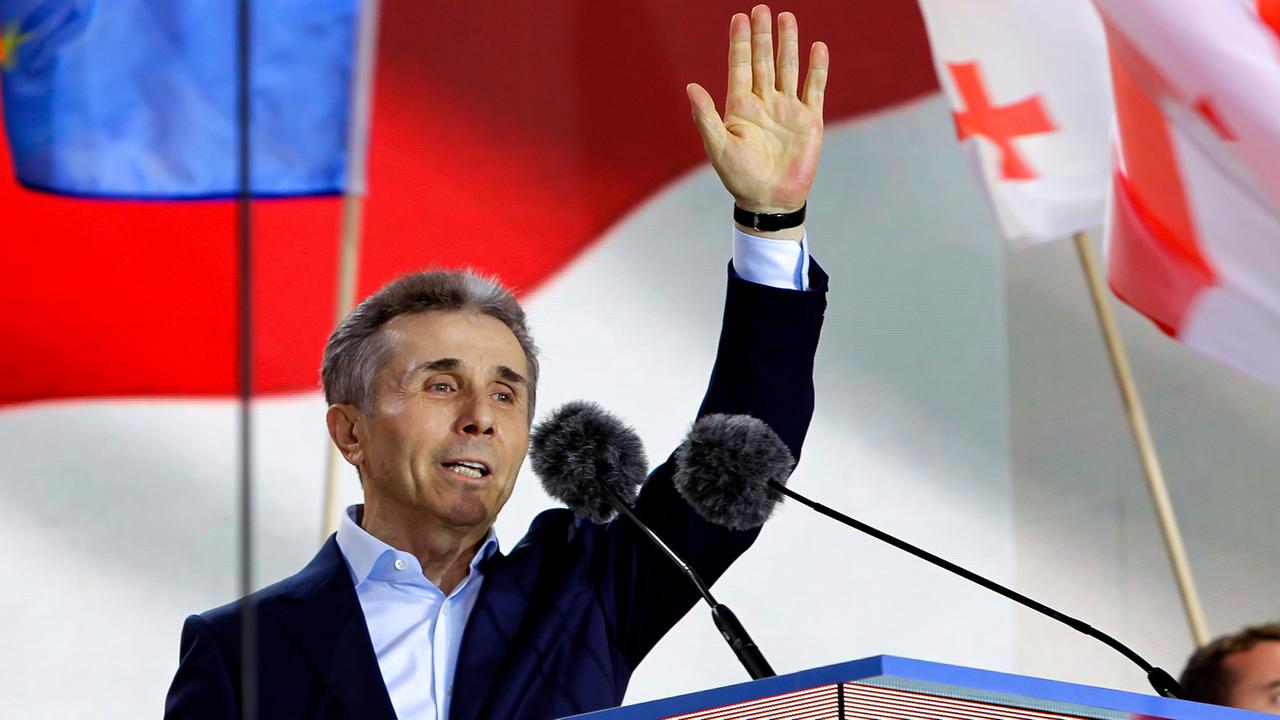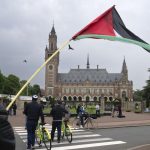analysis
The ruling party in Georgia is striving with all its might for another term in office and is putting the future of the country at risk. Behind it stands an oligarch who sees enemies everywhere.
For a long time, there were only rumors about him. He was never seen in public. He became fabulously rich in the 1990s as a businessman in Russia. He donated generously to the construction of the Sameba Church in Georgia's capital Tbilisi, as well as to the equipment of the Georgian army. In his home region of Imereti, he financed roofs for people.
The rumors intensified in 2011. Then Bidzina Ivanishvili stepped into the spotlight. He founded the “Georgian Dream” party. His goal: to oust the incumbent president Mikheil Saakashvili, who was behaving more and more authoritarianly, from power with his UNM party in the 2012 parliamentary elections.
“Saakashvili's people came, ran businesses and robbed the country. I, on the other hand, have spent two billion on the country and will continue to do so. I am a great democrat. I am strict, principled, straightforward and clear,” he said at the time in an interview with tagesschau.deIn fact, many houses in Imereti had new roofs shining in light blue and green.
His ideas about politics reflected a technocratic understanding of democracy – with him as the engineer of the distribution of power.
Loyalty instead of professionalism
For the election campaign, Ivanishvili, following the example of his opponent, hired foreign PR firms and political consultants. One of them was the former US ambassador to Germany, John Kornblum, who also traveled to the last major election event with tens of thousands of participants and later complained about unpaid bills.
The election victory was overwhelming. Ivanishvili became prime minister and formed a coalition with several parties. However, he filled the most important posts with his people. The then interior minister and later prime minister Irakli Garibashvili was a manager in Ivanishvili's Cartu Group. The general director of the bank of the same name, Irakli Kvirikashvili, also held several posts in the cabinet. Ivanishvili's lawyer Archil Kbilashvili became Attorney General.
Eccentric hobbies
Ivanishvili himself quickly grew tired of politics and retired in 2013. But he did not stop at business activities and indulging in his eccentric hobbies, including a private zoo and a private park in which he had old and rare trees transplanted from all over the country.
Ministers from other parties at the time reported in an interview with tagesschau.dethat the cabinet continued to make no decisions without Ivanishvili's approval. Diplomats also made frequent pilgrimages to his glass palace above the capital to exchange ideas with him.
State as property
Although his party corrected some of the ultra-liberal excesses from the Saakashvili era, prosperity remained a promise for most people in Georgia. They still voted his party into government two more times, partly because of a lack of alternatives. Saakashvili and several of his colleagues were sentenced to prison terms.
Meanwhile, Ivanishvili and his people are exercising power informally in the system of separation of powers that still exists formally. Opposition politicians speak of Ivanishvili's appropriation of the state. BI, as he is also called, sees Georgia as his property.
Contacts with Russian companies
Would he give away this property – to the all-powerful neighbor Russia? Those who see Ivanishvili as an executor of the Kremlin's orders point to the short-term Attorney General Otar Partzkhaladze, a Russian-Georgian businessman and, according to local media, a confidant of Ivanishvili. The US government placed him under sanctions because he allegedly cooperated with the Russian domestic intelligence service FSB to influence the mood in Georgia.
A 2022 report by Transparency International Georgia describes connections between Ivanishvili and Russian companies. Two audio recordings on YouTube are said to prove that Ivanishvili spoke with Russian businessman Vladimir Yevtushenkov about possible deals to circumvent Western sanctions.
Enemies everywhere
A former prime minister of the ruling party, Giorgi Gacharia, does not believe that Putin wants to take power in Georgia. The Russian leadership does not want to make that effort, it is enough to be able to exert pressure, said Gacharia in an interview with tagesschau.de.
But according to Gakharia's description, Ivanishvili is susceptible to pressure. Gakharia is primarily concerned about his security and sees enemies everywhere. Ivanishvili believes that only power can protect his security.
This would explain why his party wants to push through the “foreign influence” law and other measures to restrict government opponents at all costs before the parliamentary elections.
Ivanishvili seems convinced that the West is after him. Proof of this is that two billion dollars of his assets have already been effectively frozen. It is known that an employee of the Swiss bank Credit Suisse embezzled more than 100 million dollars from a one billion dollar investment. Ivanishvili took the bank to court. It took years for the bank to pay. But it was also because legal proceedings were pending against several financial institutions through which the investment had been placed with Credit Suisse.
Obscure “global war party”
Then on April 28, Ivanishvili spoke at a rally about a “global war party” that was targeting Georgia and financing his political opponents in the country. He said he would make sure that they received their “due punishment.” In doing so, he showed that he himself stands behind the conspiracy rumors that his party loyalists usually spread. People close to him say that Ivanishvili is serious about this.
By enforcing the law on “foreign influence,” his party is now actively jeopardizing Georgia's further path to the EU, even though more than 80 percent of the population, and thus a large proportion of its previous voters, are in favor of EU accession.
In this speech, Ivanishvili no longer presented himself as the benevolent leader of the country, as he had once promised. He seemed more like a paranoid oligarch who is holding his country hostage.





